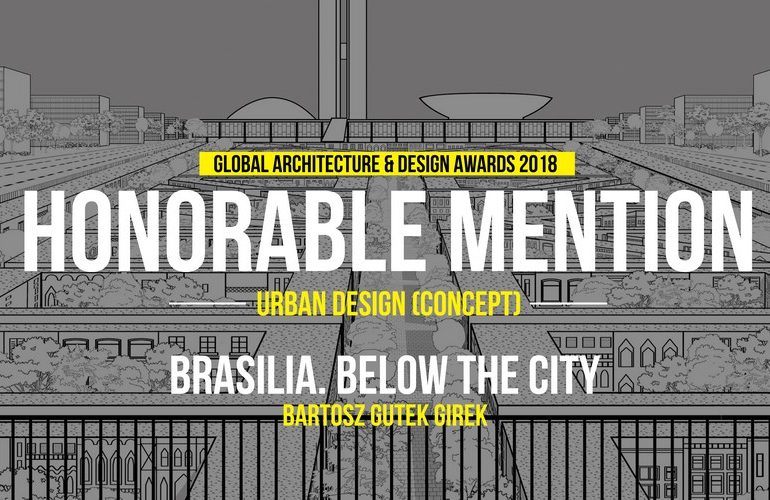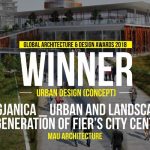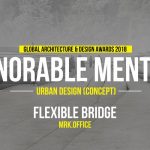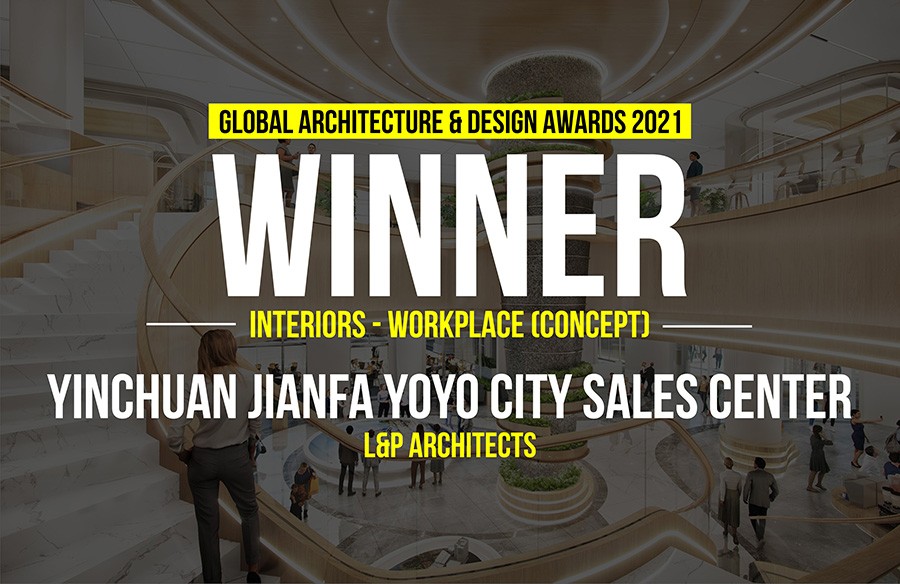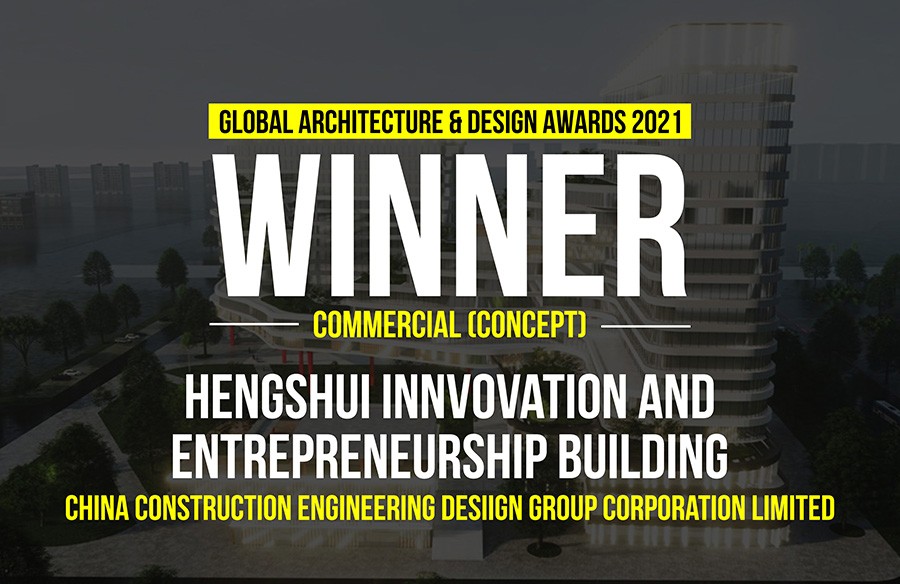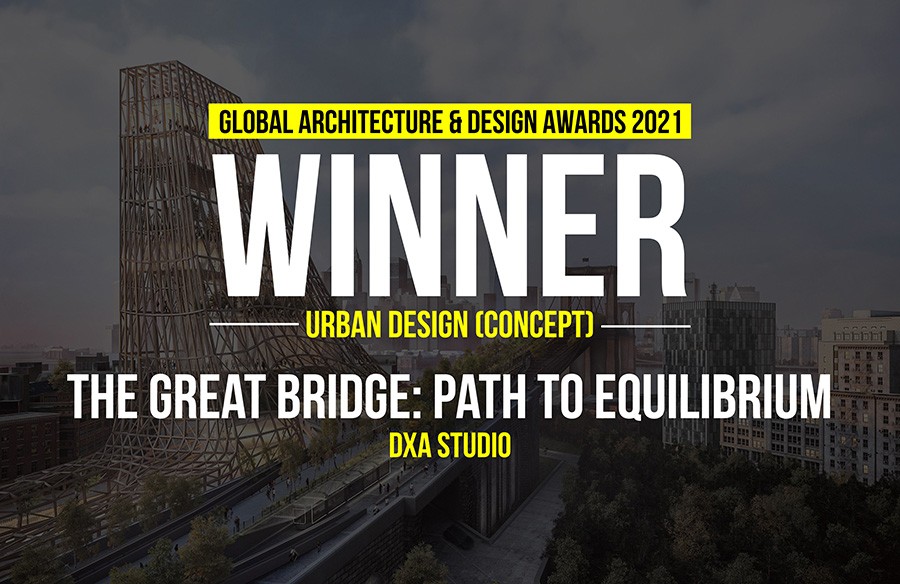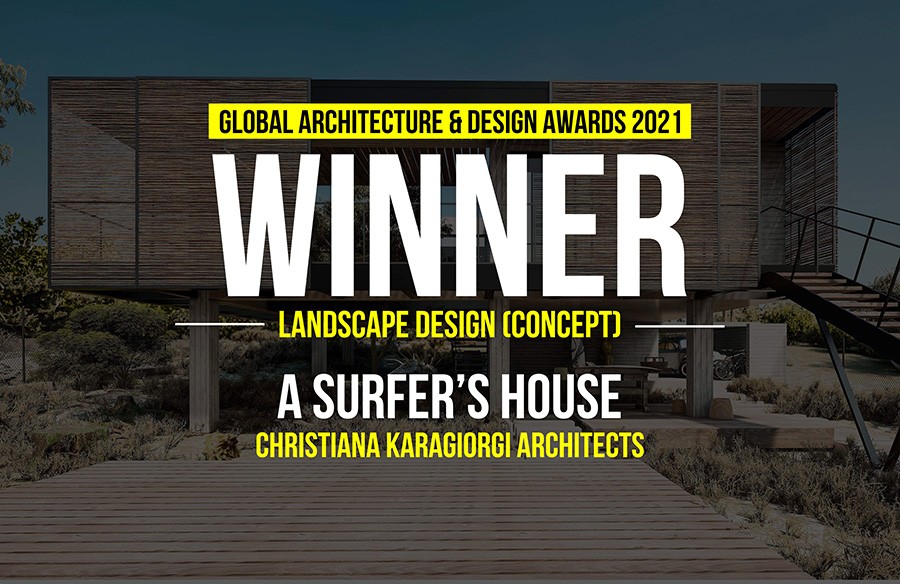Brasilia – city built within 3.5 years in the middle of the jungle. Considered to be one of the greatest achievement of modernism. Brasilia is very unique city where almost all modernism postulates has been realized, due to that change we can decide if the chosen direction the city progressed was right.
Global Architecture & Design Awards 2018
Honorable Mention | Category: Urban Design (Concept)
Architects: Bartosz Gutek Girek
Country: Poland

However revolutionary ideas about urban spaces have not created good conditions for new residents coming from all over the country. The city imposed a new model of social-behavior. New space forced citizens to abandon traditional way of social life, where activities in the public domain were one of the most crucial value. Inhabitants of Brasilia could no longer enjoy the “street life”, which, for centuries, was the foundation of their social life. This lead to the damage of social life, in which interpersonal relationships have never been established. ‘Brasilia. Below the city’ is a project that treats equally the spatial and the social meaning of the city.

Numerous correlations between the shape of the city and social life lead to one conclusion- both aspects depend on each other. The project is therefore an attempt of repairing the social structure by re-shaping the urban system. At the same time, in the spatial structure, it is an utopian attempt to reconcile two conflicting interests – protecting the heritage of our culture with fundamental spatial changes to protect social good.
The project assumes the coexistence of two independent urban systems on one land. The First assumption is the original structure, preserving all its advantages and disadvantages. The second one is a newly designed urban structure that utilize undeveloped space (composite axes) in the original design, based on well-functioning, pre-industrial city-patterns, that were the results of empirical experiences, needs and activities, being a place of rich social life. The boundary between these two structures is strict and clear, based on a vertical division. Existing urban fabric rises from 0.00 meters upwards, while the newly designed structure, goes down from 0.00 to -12 meters. New project is entirely set inside the huge, canyon-like structure, where none of the buildings exceeds the level of adjacent terrain. Thanks to that, spatial form of this modernist city is not changed at all.

In response to modernist definition of Brasilia in ideological, urban and architectural terms, the idea of new structure is a kind of antithesis of the original plan. It concerns about density of population and buildings, zoning, pedestrians, typology of buildings, public spaces, greenery, local identity, human scale etc. The new project is implemented to spread out in the entire space of the original city, to improve the quality of life in each of its fragment, emphasizing the most important composite axes of the original assumption. However, it is not an attempt of discrediting modernist ideas that were largely right, but used in uncompromising and excessive way lead to many social dysfunctions. ‘Brasilia. Below the city’ only makes sense when it complements the deficiencies of the original city. These two urban systems within one space, do not compete with each other, but they complement each other, creating a one cohesive city.
If you’ve missed participating in this award, don’t worry. RTF’s next series of Awards for Excellence in Architecture & Design – is open for Registration.
Click Here

